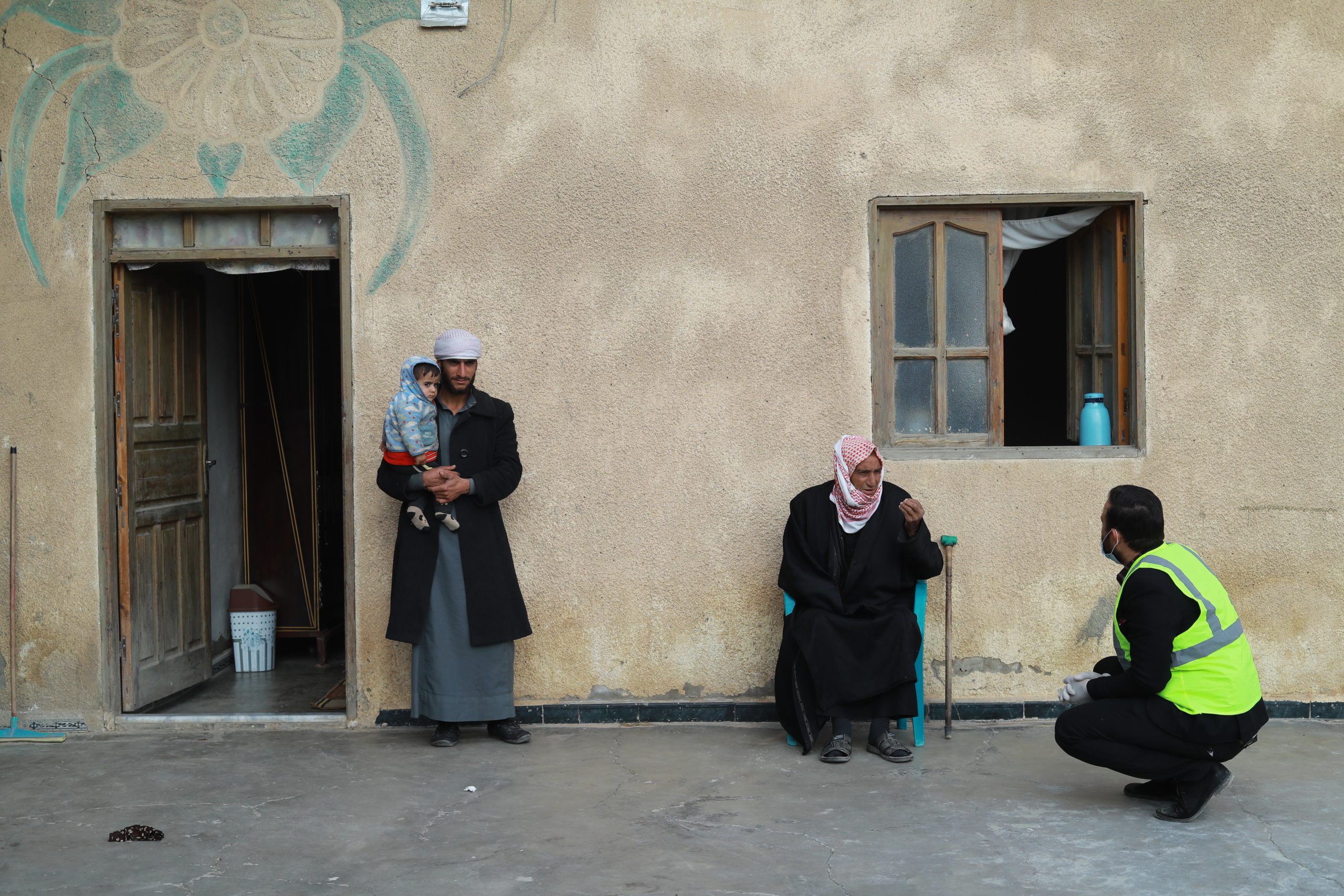
A hygiene worker educating people in a Northern Syria displacement camp about hygiene after the outbreak of a cholera epidemic in the village of Khas Aalj in 2022. Image: EU Civil Protection and Humanitarian Aid via Flickr
Analysing mental health and psychosocial support service provision in conflict-affected Northwest Syria: lessons for donors
12 October 2023
Since 2011, Northwest Syria (NWS) has been a conflict area with challenging political, economic, demographic and social dynamics. The region has a high number of internally displaced persons, more than 2.8 million people are estimated to be in need of humanitarian assistance, and there is increasingly disrupted delivery of basic services. This includes healthcare. (ReBUILD for Resilience has previously published on WHO’s delivery of an Essential Health Services package and complementary approaches for private sector engagement in the health system in the area.) Inevitably, the ongoing conflict is resulting in increasing mental health needs, at a time when the infrastructure and capacity of the health sector is negatively impacted and least able to meet that need.
In their new paper [opens new tab], Dr Ibrahim Bou-Orm and colleagues have explored the provision of mental health and psychosocial support (MHPSS) services to communities in NWS, including healthcare workers, with a view to assessing the experiences of beneficiaries with MHPSS services. Their study (which was co-funded by the WHO Attacks on Health Care Initiative and ReBUILD for Resilience) analysed 44 semi-structured interviews and a group model building workshop with 15 participants, as well as a survey with 462 beneficiaries.
The team’s findings suggested an improvement of MHPSS services in the region over the last few years due to the creation of a specific Technical Working Group for MHPSS, contributing to assessment of community needs and support of the MHPSS response. However, their findings also suggested gaps in the sustainability of services and a need to scale up those interventions in an integrated approach. Ibrahim said:
“As we aim to build resilient health systems in Northern Syria and elsewhere, this paper stresses that the presence of strong integrated MHPSS services is key to maintaining the well-being of communities and health workers. These insights remind us of the importance of integrating mental health into humanitarian responses and should serve as a call for all humanitarian actors and donors to prioritise MHPSS in conflict-affected settings.”
You can download the Conflict & Health paper here. [opens new tab]
Image: A hygiene worker educating people in a Northern Syria displacement camp about hygiene after the outbreak of a cholera epidemic in the village of Khas Aalj in 2022.
Copyright: EU Civil Protection and Humanitarian Aid via Flickr [opens new tab]